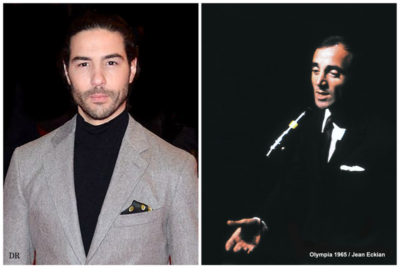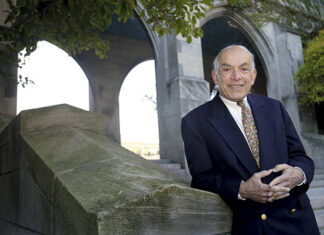PARIS — October 2024 marked the centenary of Charles Aznavour, iconic French-Armenian singer-songwriter who passed away at 94 in 2018. To honor his legacy, a new biopic, “Monsieur Aznavour,” was released in theaters in October, celebrating the extraordinary life of one of France’s most beloved cultural figures.
The Pathé Opéra cinema was buzzing with excitement on October 23, the film’s release date. Tickets sold out quickly, and just 20 minutes before the screening, only six seats remained—on the front row. “Not ideal for our necks, but we don’t care. We are going,” joked Elisa Samourcachian, 24, who attended with her friend Tina. The two French-Armenian girls were among the few who fully understood the film’s opening scene, where Aznavour’s parents converse in Armenian. “It was emotional to hear Armenian in such a large, packed theater,” Tina shared.

For once, an Armenian story graced the French silver screen not as a tale of genocide but as a celebration of life and culture. It appears as a contrast to “The Cut” (2014), a Genocide-focused film that struggled to draw audiences beyond the Armenian community. What both films have in common is French-Algerian actor Tahar Rahim.
Tahar Rahim portrayed Aznavour from his 20s to 50s, a demanding role that required months of preparation. “I thought I would never make it; it seemed like a crazy idea,” Rahim admitted. “But the producers believed in me, and that gave me the strength to push through. This turned out to be the most beautiful experience of my career,” he recognized.
Rahim’s transformation was meticulous. He studied Aznavour’s gestures, vocal style and even his idiosyncratic mannerisms through archival footage and family insights. “There were three versions of Charles in my head: the performer, the public figure and the private man,” he explained. Rahim sang live on the film, mastering Aznavour’s signature husky voice after months of piano and vocal training.
“It wasn’t about mimicry. To convey real emotion, I had to bring a part of myself into the role. The goal was to meet in the middle, to ‘shake hands’ with him and move together,” he said.










